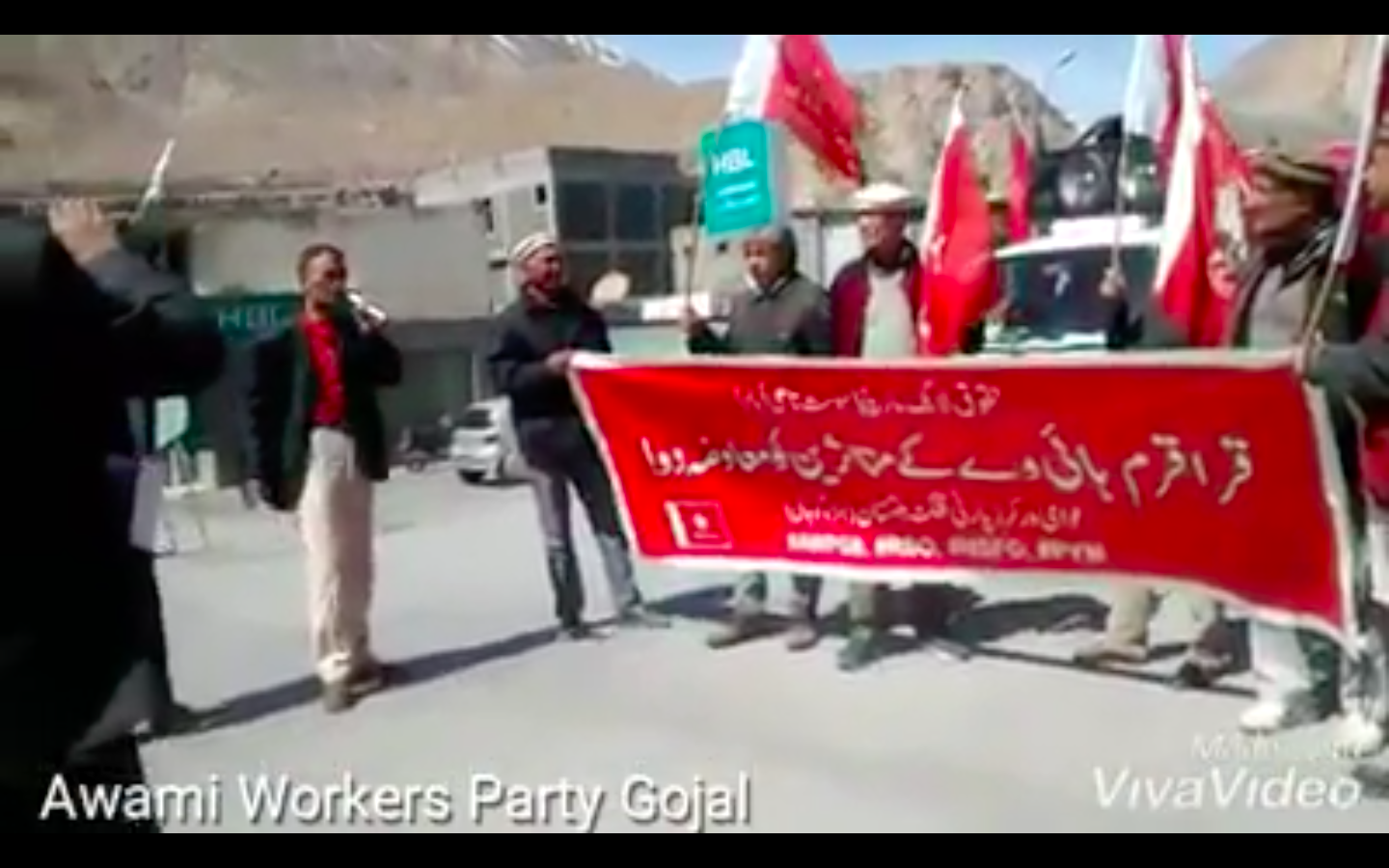The Awami Workers Party organized a long march in the Gilgit-Baltistan region of Pakistan on April 2 to highlight the basic demands of residents, including adequate representation in the government, compensation for land acquisition, electrification of the area, etc. The 90-km long march began at Sost village and concluded at Aliabad village in the Hunza valley.
One of the primary demands was the payment of the long overdue compensation for the land acquisitions done for the reconstruction of the Karakoram highway. The protesters criticized the National Highway Authority and the district administration for failing to pay the compensation for the last eleven years. They demanded that the dues be paid immediately with compound interest for the time period.
The work on the highway was part of the construction of the China-Pakistan Economic Corridor (CPEC), which has been the subject of international controversy as India has opposed the project claiming that it passes through its territory.
The protesters also raised the issue of rising unemployment, and demanded that the Gilgit-Baltistan government ensure an increase in the number of district government posts. There has also been a massive electricity shortage. Since the last six months, there has reportedly been little to no electricity supply due to delays in the completion of the Passu 2MW project.
The residents are also apprehensive of the revival of the ‘numberdari’ system. This colonial-era system gives the responsibility of tax collection to influential landlords, who are also charged with maintaining law and order. However, this system is often misused by the numberdars, or the landlords, who keep the establishment informed of any attempts to organize protests. The residents fear that the revival of the system will lead to increased spying on political activists and clamping down on any attempts to organize.
The protesters expressed their anger at the fact that instead of increasing the number of government employees and giving the area greater representation in the country’s electoral bodies, the state was creating these systems for further repression of the people.
The march also demanded the creation of two additional seats in the Gilgit-Baltistan legislative assembly for the areas of Gojal and Shinaki. The protesters also brought attention to the fact that the Hunza district does not have any elected representative to the legislative assembly, which has resulted in a stalling of all projects in the area.
The Gilgit-Baltistan region, previously known as simply the Northern Areas, was without any local representation until 2009. It was directly governed by Pakistan’s central government, with residents of the region having no say in the their governance. Only after the Gilgit-Baltistan Empowerment and Self-Governance Order was passed in 2009, was a legislative assembly for the region constituted. It was also after this order that the region formally came to be called Gilgit-Baltistan instead of the Northern Areas.
The region is part of the Jammu and Kashmir territorial conflict between India and Pakistan that has been unresolved since the countries gained independence from British rule in 1947. Due to tensions between the two countries, the area has suffered from neglect. The region has not been formally included in the Pakistani constitution even after the 2009 order, as well as the subsequent 2018 order. The real powers of governance are vested with the prime minister of Pakistan.
The residents of the area have been fighting the battle for representation and self-governance for years, along with demanding basic necessities. There has however, been little progress. Meanwhile, residents are set to continue their protests, demanding their rights.





